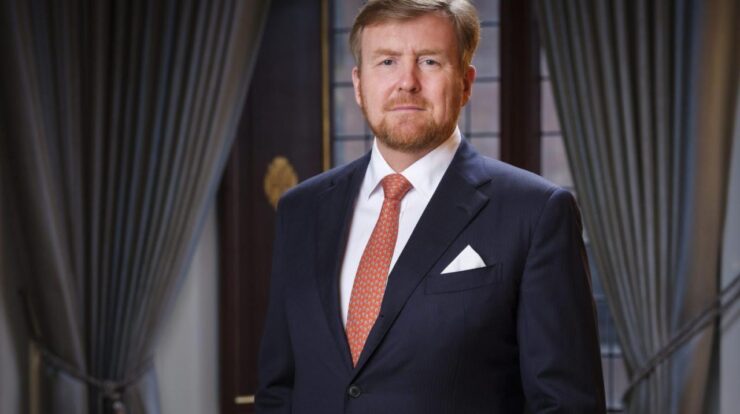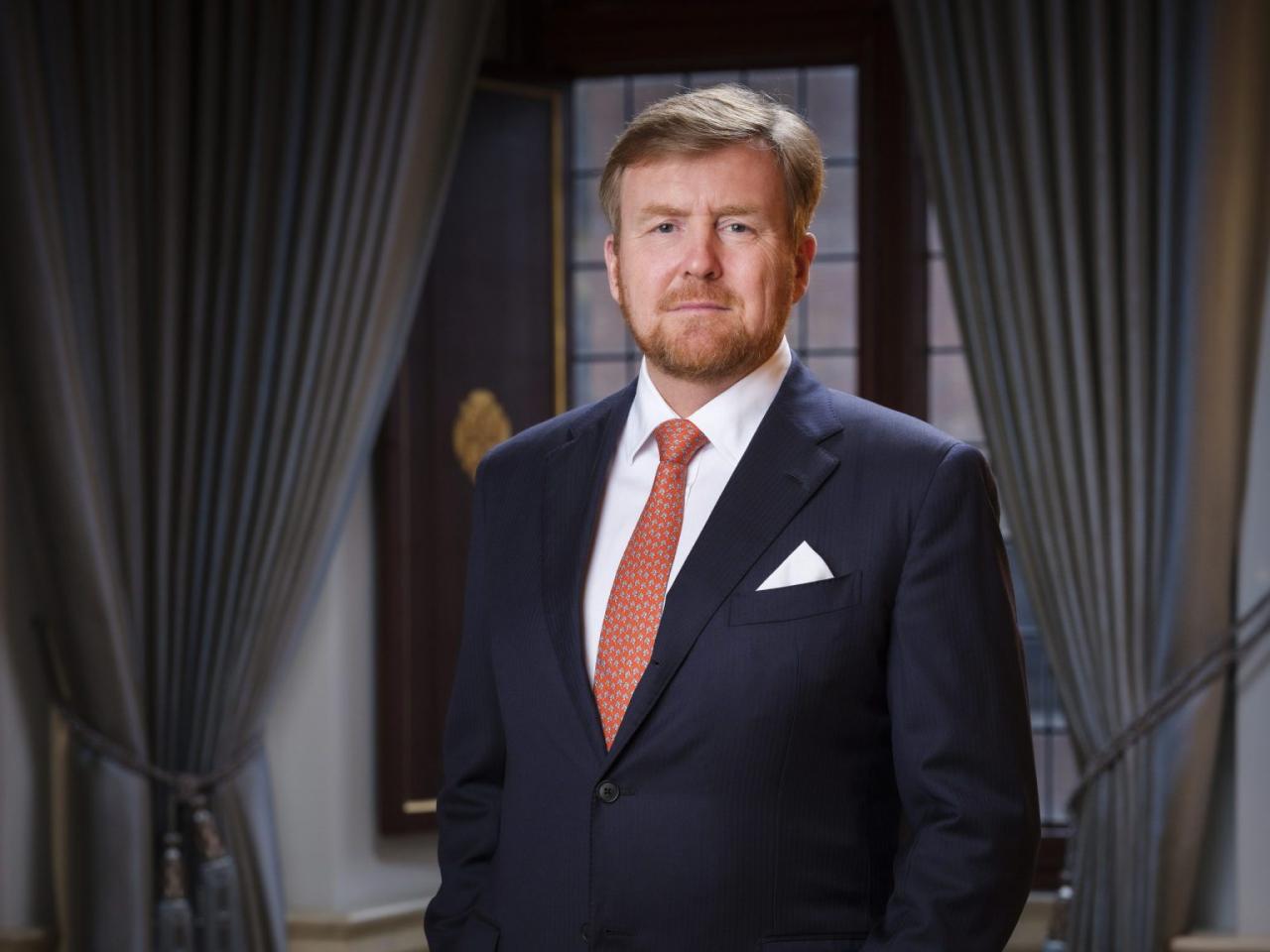
Willem alexander – King Willem-Alexander of the Netherlands embodies the harmonious blend of tradition and modernity that characterizes his reign. Ascend to the throne in 2013, he has dedicated his rule to strengthening the nation’s social fabric, fostering international relations, and preserving Dutch heritage.
Willem-Alexander’s early life and education shaped his perspectives and values. Born in Utrecht in 1967, he studied history at Leiden University and later received military training. His marriage to Máxima Zorreguieta Cerruti in 2002 brought together two cultures and strengthened ties between the Netherlands and Argentina.
Willem-Alexander’s Personal Life
Willem-Alexander Claus George Ferdinand was born on April 27, 1967, in Utrecht, Netherlands. He is the eldest son of Princess Beatrix and Prince Claus.
Early Life and Education
Willem-Alexander attended the Baarns Lyceum in Baarn and later studied history at Leiden University. He also received military training at the Royal Netherlands Naval College.
Marriage and Family
In 2002, Willem-Alexander married Máxima Zorreguieta Cerruti, an Argentine investment banker. They have three daughters: Princess Catharina-Amalia, Princess Alexia, and Princess Ariane.
Personal Interests and Hobbies
Willem-Alexander is an avid sports enthusiast and enjoys playing tennis, hockey, and skiing. He is also a keen photographer and has published several books of his work.
Reign and Responsibilities as King

Accession to the Throne
Willem-Alexander ascended to the throne on April 30, 2013, following the abdication of his mother, Queen Beatrix.
Constitutional Role and Duties
As King of the Netherlands, Willem-Alexander is the head of state and the symbol of national unity. He has limited political powers but plays an important role in forming governments and appointing ministers.
Involvement in State Affairs and Public Events
Willem-Alexander regularly attends state functions and official events. He also receives foreign dignitaries and represents the Netherlands abroad.
Social and Political Impact
Influence on Dutch Society
Willem-Alexander is a popular and respected figure in Dutch society. He is known for his down-to-earth personality and his commitment to social causes.
Role in Promoting Social Causes and Initiatives
Willem-Alexander has been involved in various social and environmental initiatives, including promoting education, fighting poverty, and protecting endangered species.
Involvement in Political Debates and Discussions
While Willem-Alexander is expected to remain politically neutral, he has occasionally expressed his views on social and political issues, such as climate change and immigration.
International Relations: Willem Alexander
Role in Representing the Netherlands Abroad, Willem alexander
Willem-Alexander represents the Netherlands in international affairs and regularly travels abroad to meet with foreign leaders and participate in international organizations.
Official Visits and Diplomatic Missions
Willem-Alexander has made official visits to countries around the world, including China, the United States, and Japan.
Contributions to International Organizations and Global Affairs
Willem-Alexander is a member of the United Nations and the World Economic Forum. He has also participated in international discussions on climate change and sustainable development.
Cultural Patronage and the Arts
Support for the Arts and Culture
Willem-Alexander is a strong supporter of the arts and culture. He is the patron of several museums and theaters and regularly attends cultural events.
Patronage of Museums, Theaters, and Cultural Events
Willem-Alexander has visited and supported museums such as the Rijksmuseum and the Mauritshuis. He has also attended performances at the Concertgebouw and the Royal Opera House.
Role in Promoting Dutch Culture and Heritage
Willem-Alexander has played a role in promoting Dutch culture and heritage, both domestically and internationally.
Media Coverage and Public Perception
Media’s Portrayal of Willem-Alexander
Willem-Alexander is generally portrayed positively in the Dutch media. He is seen as a modern and approachable king who is in touch with the concerns of his people.
Public Opinion and Sentiment towards the King
Willem-Alexander enjoys high levels of popularity and support among the Dutch people. He is seen as a unifying figure who represents the best of the Netherlands.
Popularity and Image among the Dutch People
Willem-Alexander’s popularity is due to his down-to-earth personality, his commitment to social causes, and his dedication to his role as king.
Historical Context and Legacy
Place in Dutch History
Willem-Alexander is the first male monarch of the Netherlands since 1890. He is the fourth king from the House of Orange-Nassau.
Comparison to Previous Monarchs and Unique Contributions
Willem-Alexander is a more modern and approachable monarch than his predecessors. He has broken with some royal traditions and is known for his willingness to engage with the public.
Potential Legacy and Impact on the Future of the Netherlands
Willem-Alexander’s legacy will likely be shaped by his commitment to social justice, environmental protection, and international cooperation.
Final Thoughts
King Willem-Alexander’s legacy will be one of progress and continuity. His reign has been marked by his commitment to social justice, environmental protection, and the promotion of Dutch culture. As the Netherlands navigates the challenges and opportunities of the 21st century, Willem-Alexander will undoubtedly continue to play a pivotal role in shaping the nation’s future.
FAQ Overview
What is King Willem-Alexander’s full name?
Willem-Alexander Claus George Ferdinand
How many children does King Willem-Alexander have?
Three: Princess Catharina-Amalia, Princess Alexia, and Princess Ariane
What are King Willem-Alexander’s hobbies?
Playing the piano, water sports, and skiing





